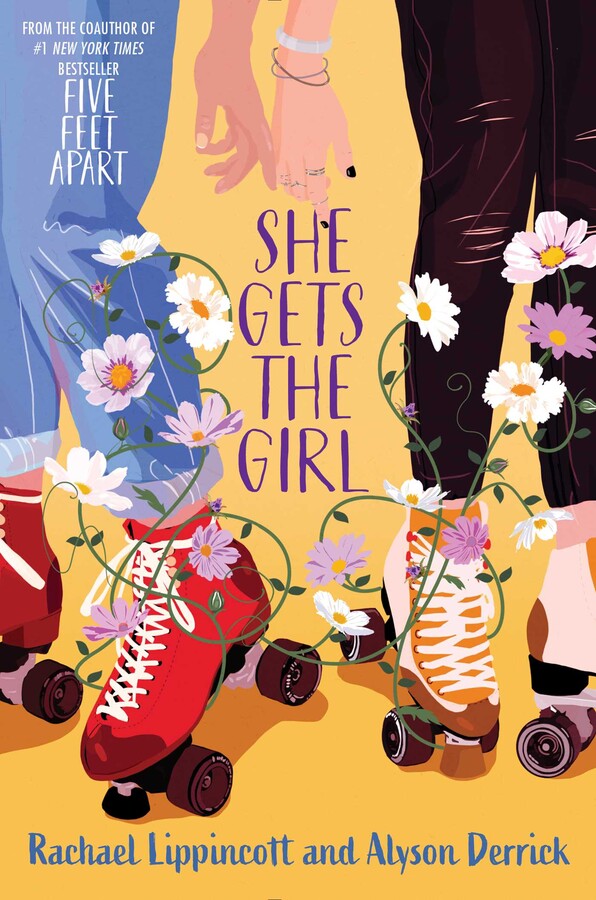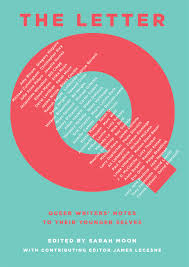I was somewhat disappointed to learn that my all-time favorite lesbian writer had released a new memoir. That’s not my usual reaction to book releases. It’s just that Jeanette Winterson’s Why Be Happy When You Could Be Normal promised to cover approximately the same time period as her first memoir, Oranges Are Not the Only Fruit. Why Be Happy also promised to set the record straight about what was and was not true in Oranges.
To be fair, Winterson explains in Why Be Happy that Oranges is not a memoir. It is a novel about a girl named Jeanette who has a childhood very, very similar to Winterson’s. In graduate school, I would have jumped on the postmodern implications of this statement. In the real world, I just call that a memoir with embellishments.
Either way, I loved Oranges. I read it when I was sixteen, the year I came out. It was the first lesbian book I read. It made me want to become a writer. I did not want Winterson to set the record straight and tell us, as she does, that her life sucked a little bit more than it did in Oranges.
Moreover, the second half of Why Be Happy is about how Winterson’s unhappy childhood continued to haunt and hurt her in adulthood. I wanted to think that Winterson, my hero, my role model, had come farther in her emotional life. Almost thirty years after Oranges, she was still writing about what a cold woman her mother was. I was mad. I wanted something different.
Still, the psychologists say that to be truly angry at someone, you have to truly love them.
I love Jeanette Winterson’s writing. I love her as much now as I did at sixteen. I love Why Be Happy as much as I love Oranges.
It’s her sentences. Lots of writers have good plots or clever premises. No one can craft a sentence like Winterson. It’s not that they are particularly long, complex, or laden with adjectives. Just the opposite. Her sentences are so clear, so sharp, so cold, like diamond stars hung in the darkness of the postmodern cosmos, their brightness a conversation with the unspoken space that surrounds them.
She is that good.
Perhaps the price is her happiness. The authorial voice in Why Be Happy is hopeful. She is striving. She is quick to say that she always embraces life. However she is still tormented. Pain and loss cling to every page. It is that intensity that I loved at sixteen. It’s that intensity that I love in Why Be Happy.
It’s the reason why Winterson can do what no one should attempt: two memoirs about the same story. I was lucky to get to read these books as they should be read. One at fifteen when one needs heroes. One at nearly 40 when one knows what heroes really look like.
By Karelia Stetz-Waters
www.kareliastetzwaters.com




Hannah says
An excellent review of an excellent book!
Laura Mandanas says
Karelia, really great review! I have both Oranges and Why Be Happy sitting on my bookshelf at home, waiting to be read. I didn’t realize the overlap between the two when I bought them, but now I’m really curious to read and compare.
Jamie Ray says
I also read Oranges right after it came out. I loved this book because she was able to speak about the effect that her upbringing had on her, and how much it affected every aspect of her adult life. The two memoirs are different because she is different; more insightful and more honest. One written close to the events, and one written after analysis. She is brilliant. Thanks for the review.
Karelia Stetz-Waters says
Thank you for your kind words about my review. I definitely agree with what Jamie Ray said. She is right that the two memoirs are really quite different, despite overlaps in content. They are both worth reading.
Monika says
You might be interested in this – Jeanette Winterson in conversation with Matt Haig:
http://www.booktrust.org.uk/books-and-reading/interviews/219